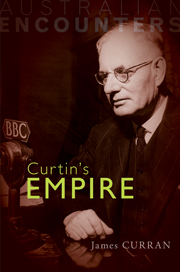Chapter 1 - ‘Citadel for the British-speaking race’
Introduction
Published online by Cambridge University Press: 05 March 2012
Summary
In June 2008 Julia Gillard, then deputy prime minister, addressed a gathering of the Australian American Leadership Dialogue in Washington DC. Speaking in the lavish State Department dining room that overlooks the Lincoln Memorial, Gillard drew on the familiar rhetoric of shared values and common interests that define the relationship between Australia and the United States. The occasion was widely seen as her debut on the foreign policy stage – a chance to show the supposed ‘movers and shakers’ of the alliance and the Washington power elite that she had the necessary mettle to handle international affairs. When Gillard took over from Kevin Rudd as prime minister two years later, it was the text of this speech to which many journalists and analysts turned to try and discern what her prime ministership might mean for the direction of Australian foreign policy.
Gillard's speech traversed the traditional terrain of cultural exchange and shared military sacrifice. She recalled the cooperation between Australian and American soldiers on the Western Front in the First World War, and emphasised that Australia had been the only country to fight alongside America at every major conflict since. But her words were securely anchored to the memory and legacy of a Labor hero, the former party leader and prime minister, John Curtin. Gillard was keen to point out that the ANZUS alliance, though officially signed in 1951, ‘reflected the judgments – clear, accurate, brutally frank judgments – of an Australian Labor Prime Minister a decade earlier’. Conceding that her audience would be all too ‘familiar with John Curtin's declaration in December 1941 about the need for Australia to “look to America”’ for its national security, Gillard instead quoted the words he had spoken on the day following the Japanese bombing of Pearl Harbor. She recalled that during an evening broadcast on 8 December 1941, the prime minister had explained to the people of Australia the imperative to defend the continent ‘“as a place where civilisation will persist”’. Gillard's speech was apparently well received by those present, and it attracted warm endorsements from the Australian press. Paul Kelly declared that the deputy prime minister had been ‘inducted into the political culture and rituals of the alliance’ and could now be counted one of its ‘true believer(s)’. The Herald's Peter Hartcher joined the chorus of celebration: Gillard's ‘Curtin call’ was an ‘excellent debut’, proving that she ‘has come a long way since the Victorian Socialist Left’. One could almost hear the collective sigh of relief amongst the commentariat: if the leading light of Labor's left-wing could utter such statements, the alliance was in safe hands.
- Type
- Chapter
- Information
- Curtin's Empire , pp. 1 - 25Publisher: Cambridge University PressPrint publication year: 2011

